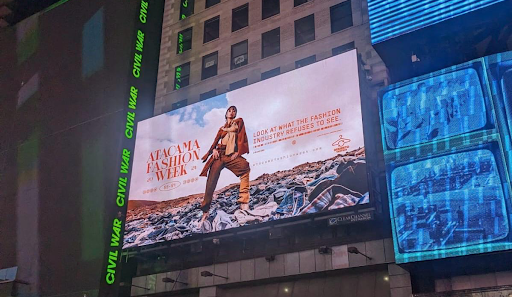Whether it is Chanel, Louis Vuitton or Adidas, the biggest brands are becoming targets of cyber squatters, in fact, the bigger the brand the higher the risk. The fashion industry is phased with the rising issue of cyber squatters. According to WIPO, fashion, banking, finance, and IT make up almost one-third of all the cybersquatting disputes handled by WIPO’s Arbitration and Mediation center back in 2017. Since then, the issue has grown steadily each year. Now with the Covid-19 pandemic, there has been a surge in cybercrimes, this can be seen in the prominent increase in the number of cases against cybersquatting.
Cyber-squatting is the unauthorized use and registration of domain names that are identical or deceivingly similar to trademarks, service mark, a particular company’s name or even personal names. To put it simply, let us take a look at a domain name; ‘louisvuittonbag.site.’ From the first look, it looks like a genuine page handled and authorized by Louis Vuitton, however, in reality, this is one of the 120 domain names and websites that were report by the brand for infringement of its trademark in 2018, we will discuss the case later in the article. In this digital age, where every company wants to build their brand, domain names have become analogous to trademarks. However, the major issue faced here is that there are numerous TLDs ( Top-Level Domains, these are the words that follow the ‘dot’ in any domain name) and under these combinations, any domain name can be registered. For example, a web page for H&M maybe www.hm.com or www.hm.net or even www.hmindia.com
There are a number of combinations that can be registered and it becomes extremely difficult for companies to keep a track of all these combinations as it is not feasible to procure all of them and the domain names are given on a first come first serve basis. Cyber-squatters indulge in various notorious activities to hamper the reputation of the brand. They may acquire the domain name of a legitimate trademark holder and hold it till the brand agrees to pay or defame the brand and blackmail them to purchase the domain name from the squatter.
There is no specific law in India that deals with domain name disputes, but the Indian courts have played a significant role in resolving related disputes. The courts have recognized domain names as business identifiers and trademarks and hence they apply the principles of trademark infringement to such disputes. Major cases surrounding cyber-squatting include-:
Louis Vuitton Malletier Vs Defendants
In the case, Louis Vuitton sued for the infringement of its trademark in Florida, there are about 120 domain names and websites that have been highlighted in the case that have reproduced counterfeited versions of the Louis Vuitton trademarks. There were about 200 Chinese retailers who were selling knock-off goods online in the USA. The brand demand that these counterfeited sites should be canceled and permanently delisted from all search engines. The court ruled in favor of the luxury retailer and compensation worth $23 million was given.
Titan Industries Ltd v Prashanth Koorapati & Others
This is the first case decided by an Indian court which deals with the protection of domain names. The plaintiff had registered ‘Tanishq’ as a trademark in 23 countries to produce and sell jewelry and timepieces. The defendant filed an application for the domain name ‘tanishq.com,’ and Tanishq objected to this unauthorized use of its trademark as a domain name.
Tanishq argued that the consumers were very likely to believe that the defendant is in some way affiliate with Tanishq which will lead to unjust enrichment to the defendant while Tanishq will suffer a financial loss. The similarity in the same would confuse the people at large and the Delhi High Court found in favor of the Tanishq and granted an ex-parte ad-interim injunction restraining the defendant from using the trade name “Tanishq” or any other name that is deceptively similar.
Yahoo Inc. v Akash Arora & Anr.
In the high-profile case of Yahoo Inc. v Akash Arora & Anr, the plaintiff sought a permanent injunction prohibiting the defendants from operating any business, selling, advertising, or handling any services or goods on the internet and otherwise under the trademark and/or domain name ‘yahooindia.com,’ or any other name.
The defendant claimed that the plaintiff’s “Yahoo!” domain name was not registered in India then hence it could not be the foundation for a trademark infringement case. Along with that the term “Yahoo!” is a generic term that is not distinctive and hence lacked any elements of originality. The defendant contended that he had put a disclaimer that there was no association between the two so no action could be taken against him. The court gave a judgment in favor of Yahoo and granted an injunction. With the explanation that the plaintiff’s internet service had become widely recognized as the search engine and was original enough for protection.
Some tips to protect yourself from these cybercriminals
- While pressing a link verify what purpose it has by hovering over it and make sure you examine the text that comes up.
- Due diligence is essential to know that the website you are using is genuine, you can be wary of domains that have a text after .com for instance hermes.com-bag[.]us.
- You should look out for any typos in the domain name, if there is any unnecessary repetition of letters or if there is a link that is directing you to another page
- Look out for ‘rn’ disguised as an ‘m’, such as modem.com versus modern.com.
- If your instinct is telling you that something is too good to be true, well then it probably is.


















